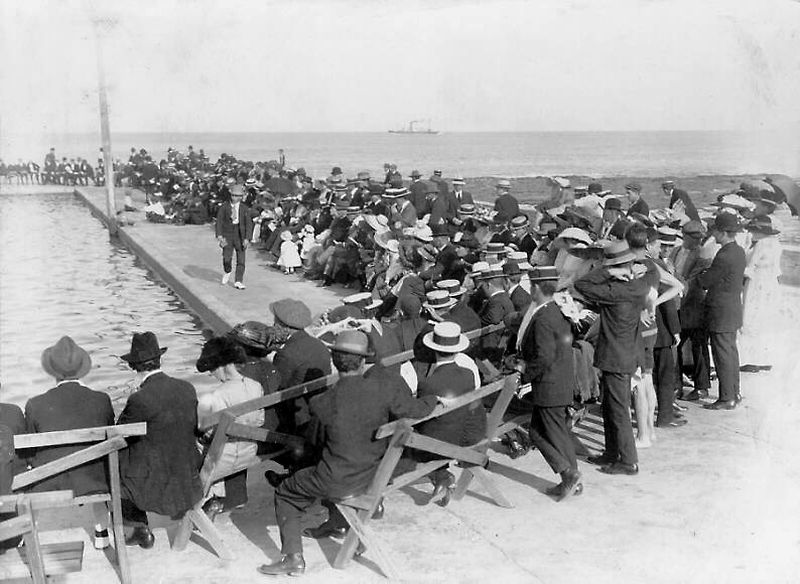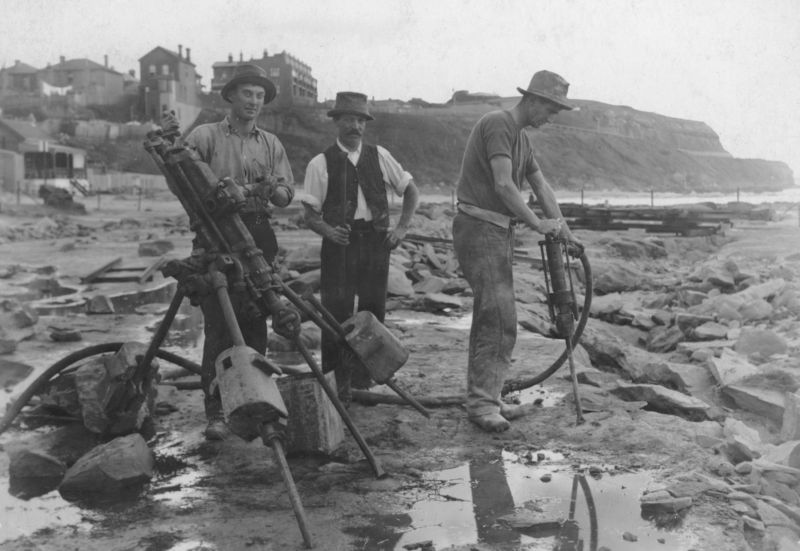Newcastle’s much-loved ocean baths will notch up another significant milestone tomorrow with the 100th anniversary of their official opening.
While swimmers have made the most of the popular ocean-front facility since as early as 1912, the pools, promenade and pavilion were not completed and formally opened until 25 November 1922.

Described at the time as “the finest in the Commonwealth”, Newcastle Lord Mayor Nuatali Nelmes said the Newcastle Ocean Baths remain one of the city’s crowning coastal assets, playing an integral role in the recreational pursuits of locals and visitors alike.
“The Newcastle Ocean Baths have been a treasured part of our community for the past 100 years, creating lasting memories for generations of Novocastrians and visitors who have flocked to swim, sunbath or simply relax and take in the spectacular views off our coastline,” Cr Nelmes said.
“They have played host to countless swimming carnivals, life-saving demonstrations and learn to swim lessons, and like so many Novocastrians, I hold wonderful memories of spending my childhood with family and friends at these beautiful baths.”

Historic records show that the Baths were initially leased to an operator, with an entrance fee charged from 1918 until 1953, when Council took back control of the Baths.
“City of Newcastle is committed to revitalising this iconic facility to ensure it remains a free asset, and vital part of Novocastrian life for generations to come,” Cr Nelmes said.
Stage one of City of Newcastle’s upgrade to the Newcastle Ocean Baths is well underway focusing on the pools, lower promenade and pumping system to provide improved safety and accessibility.
City of Newcastle worked closely with the Newcastle Ocean Baths Community Reference Group and other stakeholders during the planning and design phases of the stage one upgrade and will meet with community representatives in the coming weeks for a tour of the site and discussion on the project’s progress.
The $9.5 million recovered from the sale of City of Newcastle’s Fred Ash building is helping fund the $15.8 million Newcastle Ocean Baths Stage One upgrade along with $3 million in funding from the NSW Government’s Public Spaces Legacy Program. The NSW Public Spaces Legacy Program is an investment in high quality public open space, and delivers vital infrastructure for communities to love the place they live.
The second stage of the Newcastle Ocean Baths upgrade will focus on the pavilion and surrounding public areas. This phase is subject to community consultation, which will continue over the coming months.

